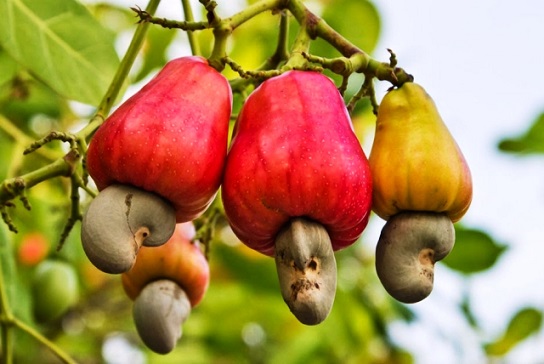Anacardic Acid From Cashew Nut Shells Can Repair Damaged Nerves Caused By Demyelination According To New Study
Source: Anacardic Acid From Cashew Nut Shells Aug 18, 2020 5 years, 6 months, 1 week, 2 days, 17 hours, 32 minutes ago
Anacardic Acid, a compound extracted from the shells of Cashew nuts is able to promote the repair of myelin in damaged nerve cells and tissues according to a new research by scientists from Vanderbilt University Medical Center.

The protective sheath surrounding nerves is known as myelin. Damage to this covering or demyelination is a hallmark of multiple sclerosis and numerous other neurological diseases of the central nervous system.
The research findings are published in the journal: the Proceedings of the National Academy of Sciences.
https://www.pnas.org/content/early/2020/08/11/2006566117
The study's senior author, Dr Subramaniam Sriram, MBBS, William C. Weaver III Professor of Neurology and chief of the Division of Neuroimmunology at Vanderbilt University Medical Center told Thailand Medical News, "We see this as an exciting finding, suggesting a new avenue in the search for therapies to correct the ravages of MS and other demyelinating diseases."
Past resaerch led by Dr Sriram showed that a protein called interleukin 33, or IL-33, induced myelin formation. IL-33 is, among other things, an immune response regulator, and multiple sclerosis is an autoimmune disorder.
Dr Sriram and his study team grew interested in Anacardic Acid because it's known to inhibit an enzyme involved in gene expression called histone acetyltransferase, or HAT, and the team had discovered that whatever inhibits HAT induces production of IL-33.
The study includes a range of new findings that point to potential therapeutic use of anacardic acid for demyelinating diseases:
-It was observed in vitro studies that the addition of the compound to rat cells most responsible for myelination ie oligodendrocyte precursor cells, or OPCs spurred induction of IL-33 and rapidly increased the expression of myelin genes and proteins, including dose-dependent increases in myelin basic protein;
-It was also seen in two animal models of demyelination, treatment with the compound increased the relative presence of IL-33-expressing OPCs and led to reduced paralysis;
-Also in an animal model of demyelination treated with the compound, dissection and electron microscopy showed dose-dependent increases in myelination.
Dr Sriram added,"These are striking results that clearly urge further study of anarcardic acid for demyelinating diseases."
Interestingly in other studies, anacardic acid was found to help in lung inflammation and to repair damages in lung tissues as a result of pollution from diesel exhaust particles.
https://www.hindawi.com/journals/ecam/2013/549879/
The medicinal use of anacardic acid goes back long before it was called that. The traditional Indian Ayurveda texts depicts cashew nutshell oil as a medicinal remedy with alexeritic, amebicidal, antibiotic and antioxidant properties and was used to treat, gingivitis, malaria and syphilitic ulcers.
However, research and em
erging evidence suggests that anacardic acid could be a potent target molecule with bactericide, fungicide, insecticide, anti-termite and molluscicide properties and as a therapeutic agent in the treatment of the most serious pathophysiological disorders like cancer, oxidative damage, inflammation and obesity. Furthermore, anacardic acid was found to be a common inhibitor of several clinically targeted enzymes such as NFκB kinase, histone acetyltransferase (HATs), lipoxygenase (LOX-1), xanthine oxidase, tyrosinase and ureases.
https://onlinelibrary.wiley.com/doi/full/10.1111/j.1742-7843.2011.00833.x
For more about
Anacardic Acid and the latest research, keep on logging to Thailand Medical News.
Help! Please help support this website by kindly making a donation to sustain this website and also all in all our initiatives to propel further research: https://www.thailandmedical.news/p/sponsorship
All donations of value US$50 to US$100 will also receive complimentary therapeutic teas that can be useful in this COVID-19 era. https://www.thailandmedical.news/news/new-therapeutic-teas-
